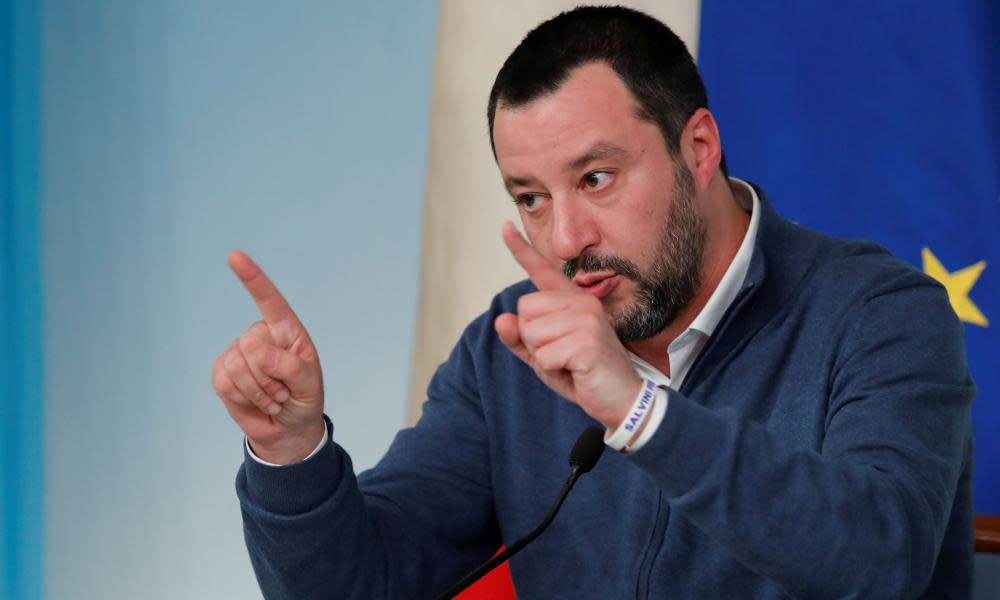Italian senate group votes to block criminal case against Salvini

An Italian parliamentary committee has voted to block a criminal case against Matteo Salvini, the deputy prime minister and interior minister, for refusing to allow migrants to disembark from a rescue ship.
Prosecutors in Catania, Sicily, need the backing of parliament to continue investigations against Salvini, who also leads the far-right League party, for alleged abuse of office and kidnapping.
Sixteen senators from the committee voted to defend Salvini’s parliamentary immunity, while six were against. The Italian senate has until 24 March to decide whether or not to ratify the outcome of the vote.
Salvini had sought immunity, arguing he acted in the interests of Italians when he stopped the 150 passengers, mostly from Eritrea, aboard an Italian coastguard ship from landing in Catania last August. Those onboard were stranded at sea for five days amid an EU standoff before the Catholic church, Ireland and Albania offered to take them in. Salvini’s coalition partner, Luigi Di Maio, who fronts the Five Star Movement (M5S), supported his actions, arguing the decision was taken by the government as a whole.
The result of the committee vote may ease tensions between the partners over other issues but has caused rifts within M5S as the party had garnered much of its support through a founding policy that called for the resignation of politicians under investigation.
The party turned to its online platform, called Rousseau, on Monday to ask members to vote on the issue, a move that resulted in 59% supporting Salvini but which prompted criticism from some M5S politicians.
Elena Fattori, an M5S senator, said the online vote was “illegitimate” and that she would vote to allow magistrates to continue the investigation. “Our programme foresees the abolition of any kind of immunity for ministers and parliamentarians. Rousseau is a private platform, a private association and shouldn’t be used for matters of national interest on which only one party votes.”
Di Maio said putting votes to citizens was “part of our DNA”.
Politicians from the opposition Democratic party protested outside the committee meeting on Tuesday, carrying signs saying “disgrace” and “you called yourselves honest”.
Before the vote, Salvini wrote on Facebook that he was feeling “calm”. Alongside a photo taken against a sunset in Sardinia, where he is campaigning ahead of regional elections on Sunday, he wrote: “Italians know that I did it for them, to defend the borders and national security. I’m not giving up!”

 Yahoo News
Yahoo News 
